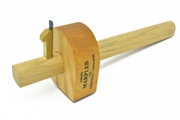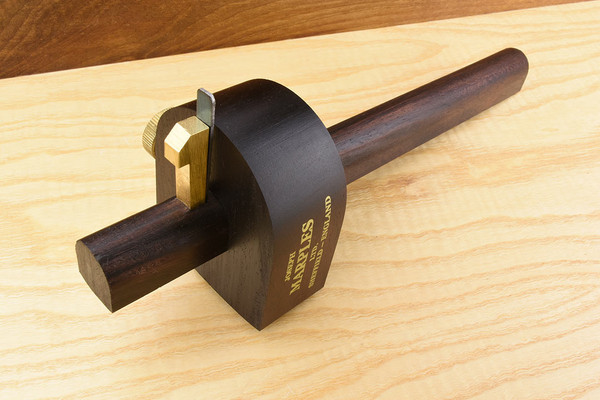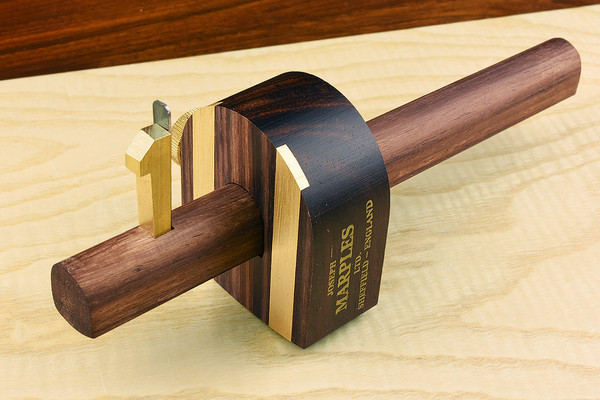Made in Sheffield by Joseph Marples & Sons
Cutting gauges are similar to marking gauges but have a small blade held in place with a brass wedge instead of a pin, the cutting gauge has a reduced tendency to follow the grain when working in timbers with distinctly soft summer and hard winter growth rings like pine or ash. This one performs beautifully, leaving a nice crisp mark that is easy to pick up with a chisel.
English marking gauges are used with the stock and the corner of the stem both in contact with the workpiece. Stand the timber firmly against a bench dog or in the open jaw of the vice and sight along it, pressing the head of the marking gauge up against the prepared face side or edge. The top of the gauge is rolled towards you like the throttle of a motorbike as you push the gauge away, insinuating the pin or cutter onto the surface and carefully placing your mark. The curved underside of the stem provides a clear view of the cutter and the mark, whilst light creeping in between the board and either the stem or the head provides instant warning if contact with the workpiece is lost.
It is good practice to test your gauge settings on a piece of accurately planed scrap before committing to a mark on the component, retaining the scrap piece for the duration of the project will allow you to double check your original settings should this be necessary.







